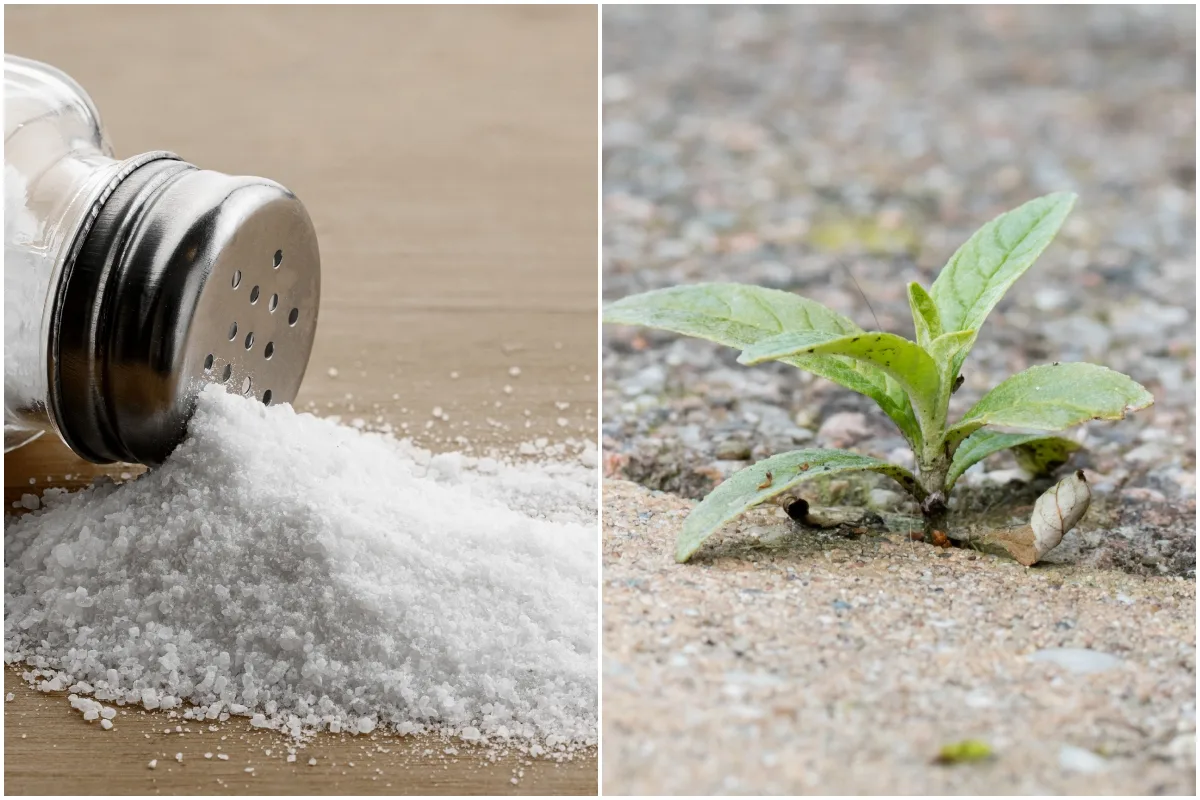
To enjoy pulling weeds by hand requires a special kind of zen. Some of us don’t have it. Instead, you may have heard about using salt to kill weeds. Salting is touted as an alternative to herbicide and a natural weed killer, and the good news is it works! The bad news is, you probably shouldn’t do it.
First, let’s clear something up; salt does work as an herbicide.
It is toxic to plants in large quantities, and applying it to kill a plant (weeds) means you are taking advantage of its phytotoxic nature, the same way glyphosate is used. While salt may be relatively safe for you, the applicator, it is not safe for garden plants, insects, or soil. Don’t fall for the clickbait headlines.
How Salt Kills Weeds (and other plants too!)
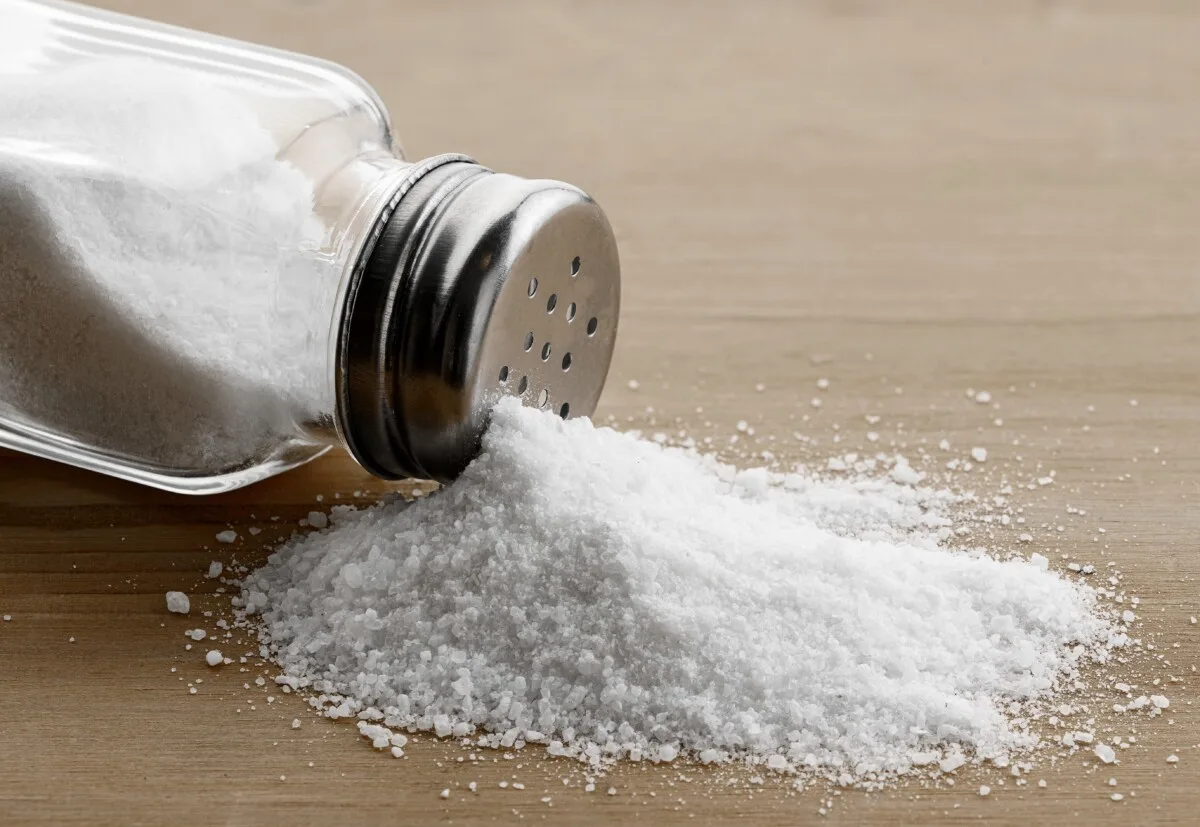
Table salt, rock salt, and sea salt are all chemically similar, containing sodium chloride. Plants, like people, need a little salt for proper biological functions, but also, like us, too much salt is harmful to plants. So much so that a solution of dissolved salt and water can be sprayed on plants as an herbicide.
Using salt as an herbicide is not a new idea.
Folklore and history are full of stories of salt being used to render the ground of a defeated enemy sterile so a captured city could not be reoccupied. While the salting was mostly symbolic, the knowledge that too much salt can poison the earth is centuries old.
Salt kills plant vegetation by drawing the water out of plant cells and dehydrating them.
Salt in the soil impedes the uptake of water by the root systems. Just like you may wake up at night reaching for a glass of water after a salty evening meal, plants also get thirsty from exposure to salt. But instead of a bit too much, you gave them a lethal dose. Some plants, like those growing near the ocean, are more resistant to salt effects than others.
It’s commonly used as an herbicide by spraying a salt solution on the leaves and stems or sprinkling it on the ground around the plants and watering in. Salt usually kills plants within 10 days of application. However, young broadleaf weeds, such as bindweed, may appear brown and burned after only a few hours in direct sun. Larger plants are slower to succumb than smaller, younger weeds.
Why Using Salt in the Garden is a Bad Idea
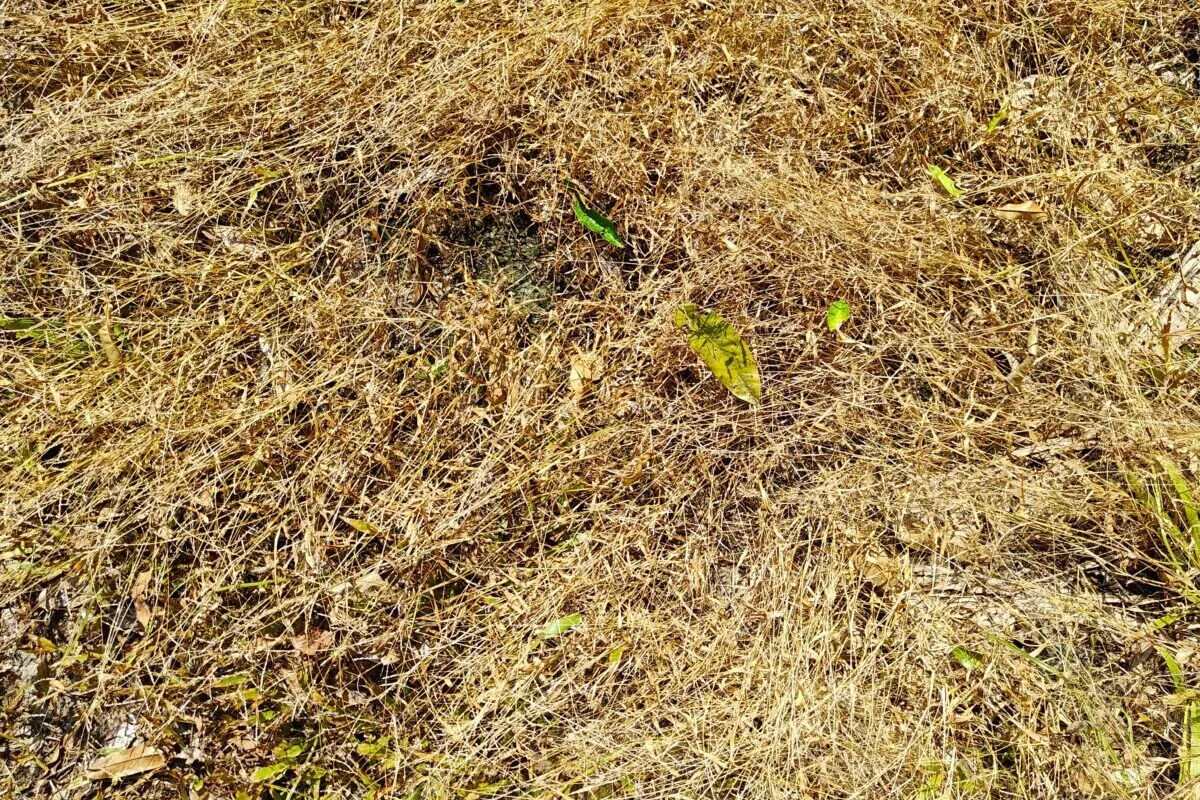
Salt is effective at killing weeds and is non-toxic, so why isn’t this used by gardeners everywhere? First, salt is a non-selective herbicide, meaning it kills all plants, not just the unwanted ones (the weeds).
Like a synthetic herbicide can drift and reach other plants, so can salt.
The second reason to avoid using salt in the garden is that it builds up in the soil. Repeated applications can cause salt levels to become severe, inhibiting not only weeds but your garden plants, too.
The effects can last for years once salt levels become high in the soil.
Salt is not broken down by soil organisms; the only way to reduce salt in the soil is to wait for it to leach out. Leaching is the process of soluble minerals and compounds being carried away by water movement through the soil. Eventually, they end up in the groundwater aquifer or move via subsurface channels into the watershed and drain back to the sea.
The process of leaching salt contamination down to normal levels can take years. Obviously, you wouldn’t want to wait for this process in your garden, and encouraging it would also leach other valuable plant nutrients from your soil.
Some people advocate using a sodium chloride herbicide only where you don’t want anything to grow again anyway, like a gravel driveway, path, or between patio stones and pavers. While it sounds like a good idea, be careful. Salt can be carried with rainwater runoff and end up in places you don’t want it, like your lawn, a flower bed, or nearby streams and ponds.
What about salt used on roadways?
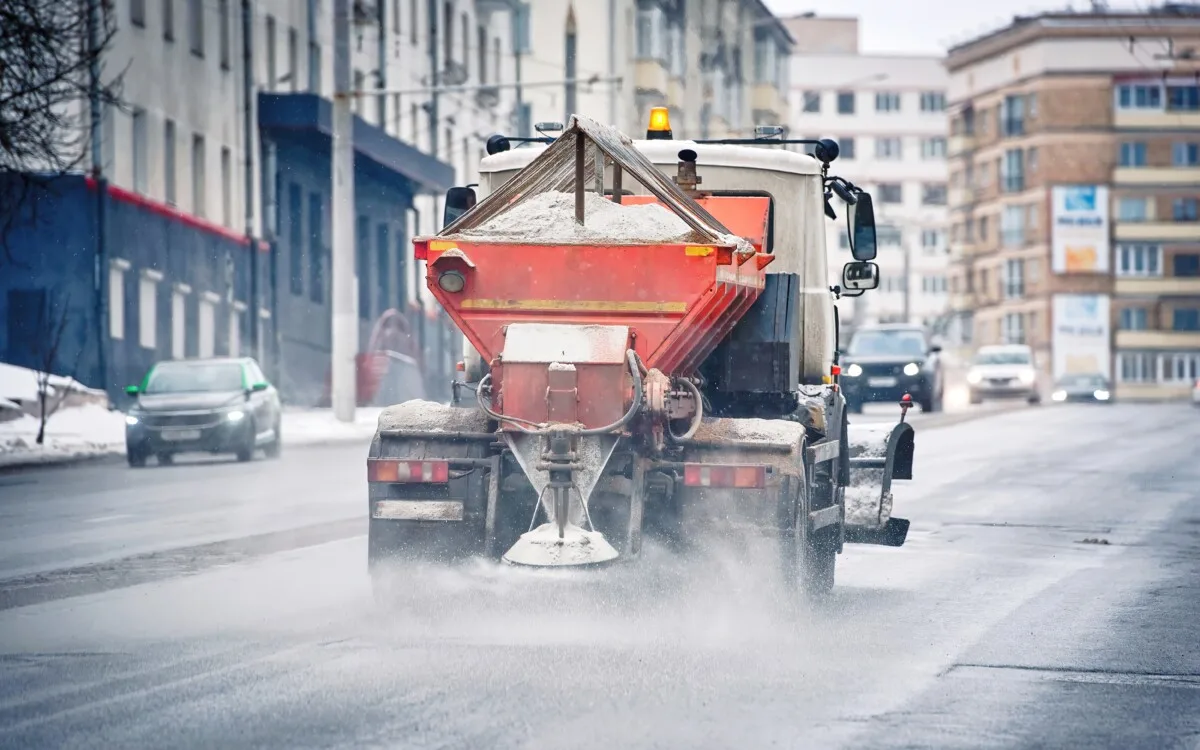
Road salt does indeed poison the soil in ditches and intersections. Evergreens near the road often show signs of salt burn and chlorosis in spring. Excess road salt not only causes problems for your car but can end up in the local watershed and build up in drinking water. While sodium chloride is relatively inexpensive, many municipalities are looking at alternatives like calcium chloride to reduce this problem.
What about Epsom salts?
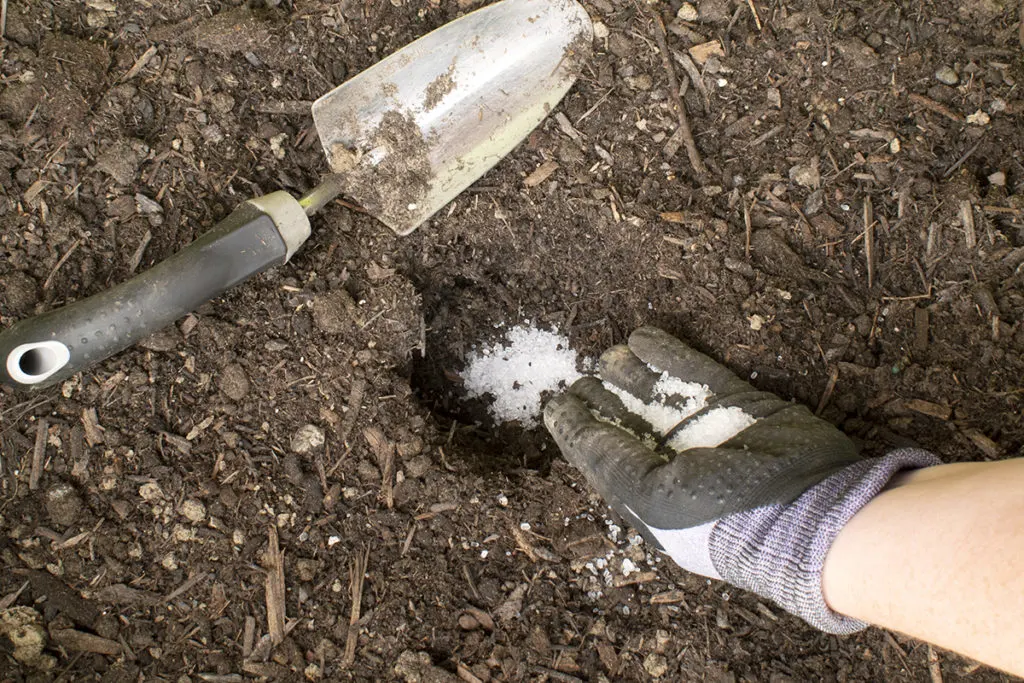
You’re probably wondering why Epsom salts are recommended for numerous garden applications if salt is bad for the soil and your plants. That’s because Epsom salts are magnesium sulfate rather than sodium chloride. Magnesium is a nutrient used by all plants. A salt is simply a chemical compound with no net electrical charge.
Other Natural Ways to Kill Weeds
While hand pulling is the simplest and safest method of removing weeds, you may be looking for another method to keep handy, especially for challenging areas like driveways or paths. Here are a few ideas. Wear proper personal protective equipment like long pants and sleeves, gloves, and eye protection. Remember, if you are using it to kill plants, it can harm living cells–like you.
1. Vinegar
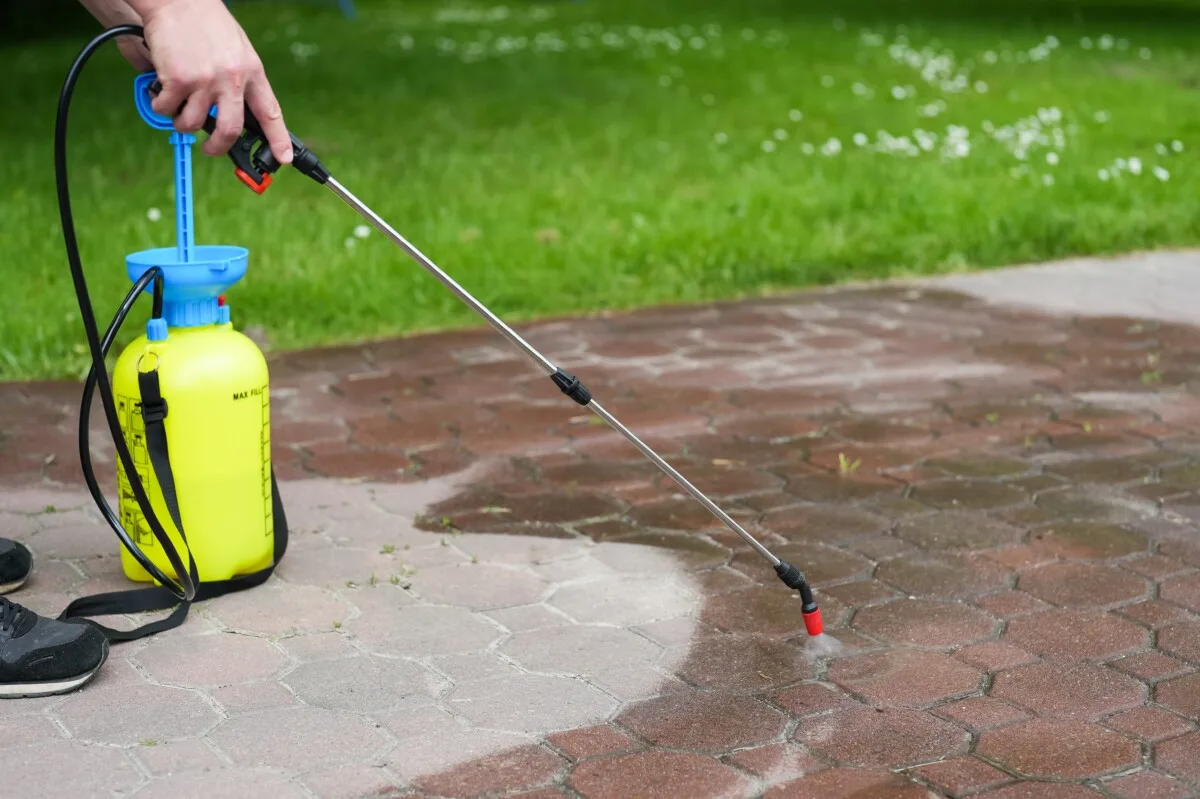
Regular household vinegar (acetic acid) is usually too weak, often 5% strength, to do more than annoy common weeds but is sometimes effective on young, tender weeds.
Horticultural vinegar of 11-20% strength is effective but is highly caustic, i.e., not safe to apply, and has the same overspray problems as a salt solution. On the plus side, it does not appear to build up long-term in the soil. Use caution if applying strong vinegar to avoid skin and eye burns, as well as overspray.
2. Boiling water
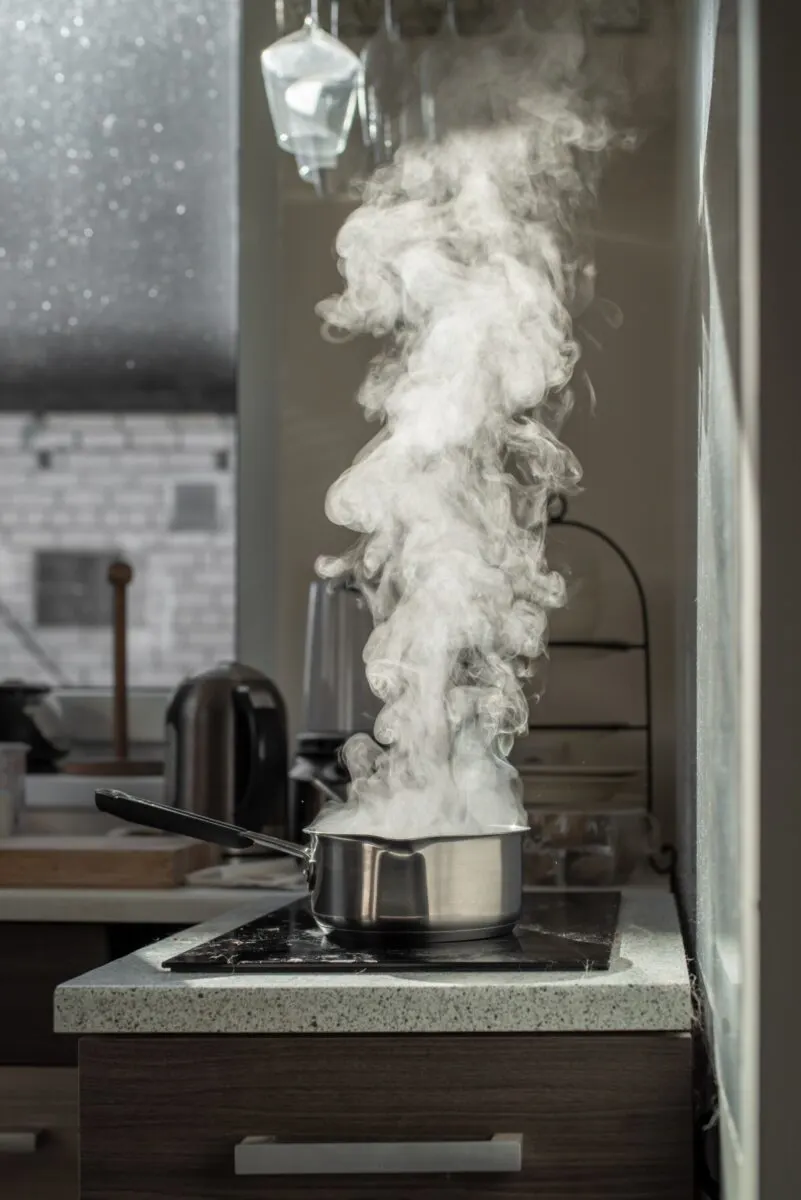
Pouring boiling water on weeds does the trick for most broadleaf and some grassy weeds. Just like spilling it on your hand, plant cells are heavily damaged and cannot be repaired. Target the base of the plant to get the roots.
While boiling water is dangerous to handle and energy-intensive to prepare, it is a chemical-free way to kill weeds in small areas. Larger weeds may die back at the surface and then resprout, so retreating in a week may be required.
3. Fire
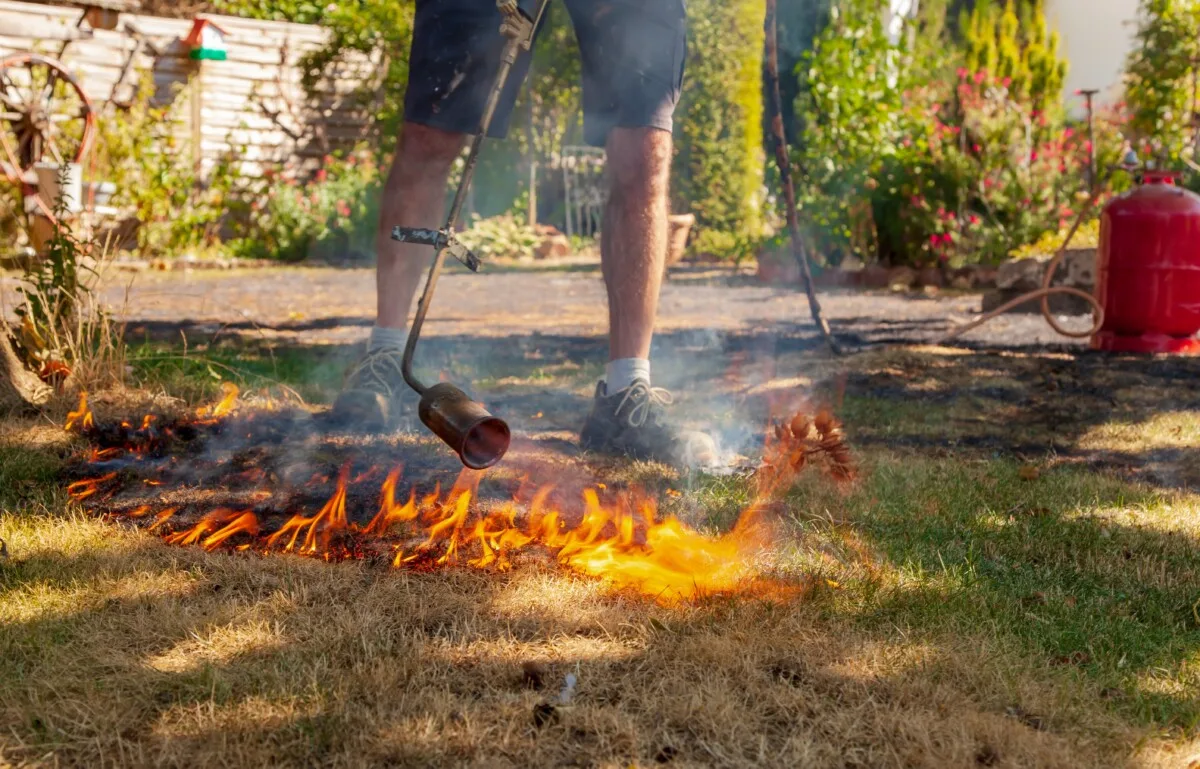
Now we’re talking! Propane-powered flame torches have been popular for decades. More energy efficient than boiling water and potentially safer to apply, propane torches can quickly kill weeds in a large area. The roots are usually not damaged, so larger plants may resprout, and several treatments may be required to exhaust the energy stores of bigger weeds and finally kill them.
Take care, and don’t use the torch near plants you wish to keep.
The heat can still damage adjacent plants. Consider other factors like nearby brush, mulch, recent dry weather, and local fire regulations. You don’t want to start a wildfire!
For large areas like garden walkways, choose a flame weeder that uses a 20lb cylinder instead of little one-pound bottles. Propane is much cheaper in larger quantities. Find a place to get it refilled instead of exchanging the cylinder for an even better price. Carry the propane cylinder behind you in a wagon.
4. Mulch
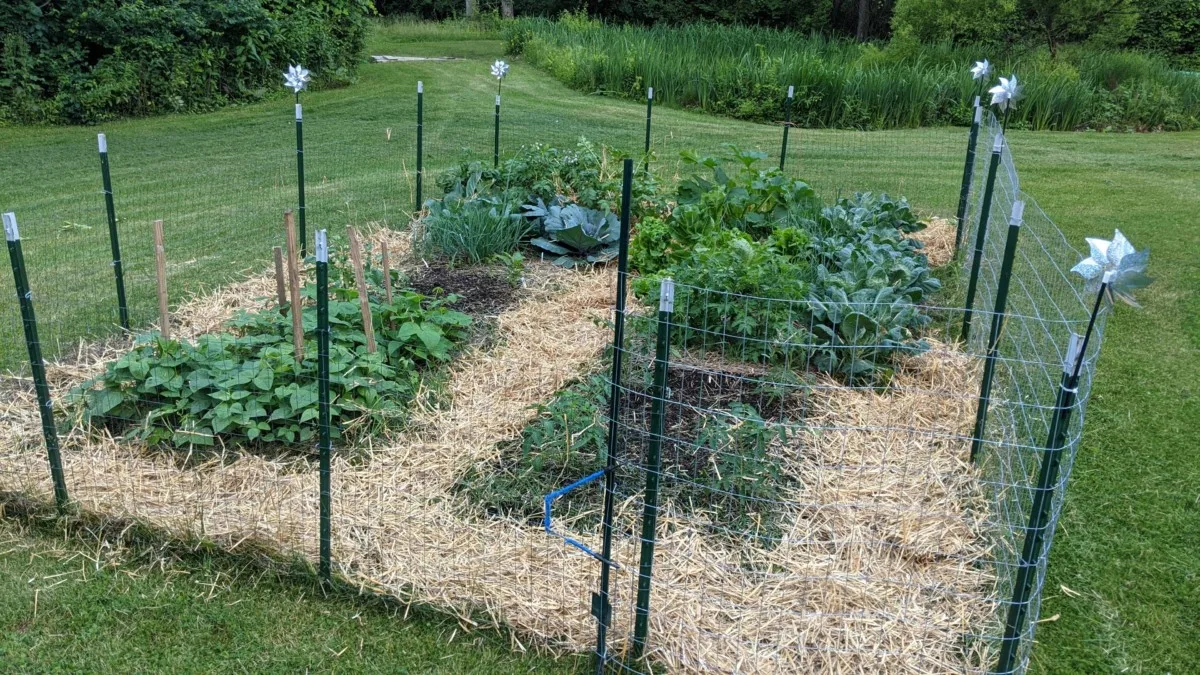
A thick mulch layer spread in spring can do wonders for suppressing weeds in the garden, choking out new weeds as they sprout, and enhancing your soil. Mulch made from chopped leaves, grass clippings, straw (not hay), or pine needles will break down over the growing season, adding soil organic matter. Properly applied mulch also keeps the soil surface from crusting over and keeps the soil moisture levels more consistent.
Weeds become more of a problem the longer they are left unchecked.
No matter your chosen method, hitting them early while they are young and tender is easier and more efficient than waiting until they have taken over.
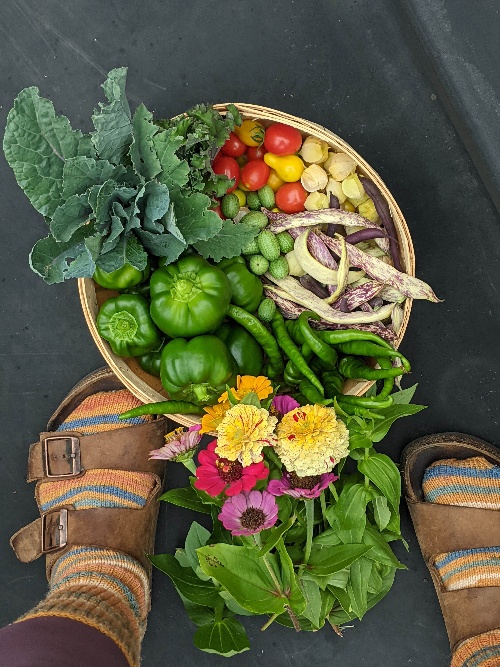
Get the famous Rural Sprout newsletter delivered to your inbox.
Including Sunday musings from our editor, Tracey, as well as “What’s Up Wednesday” our roundup of what’s in season and new article updates and alerts.

